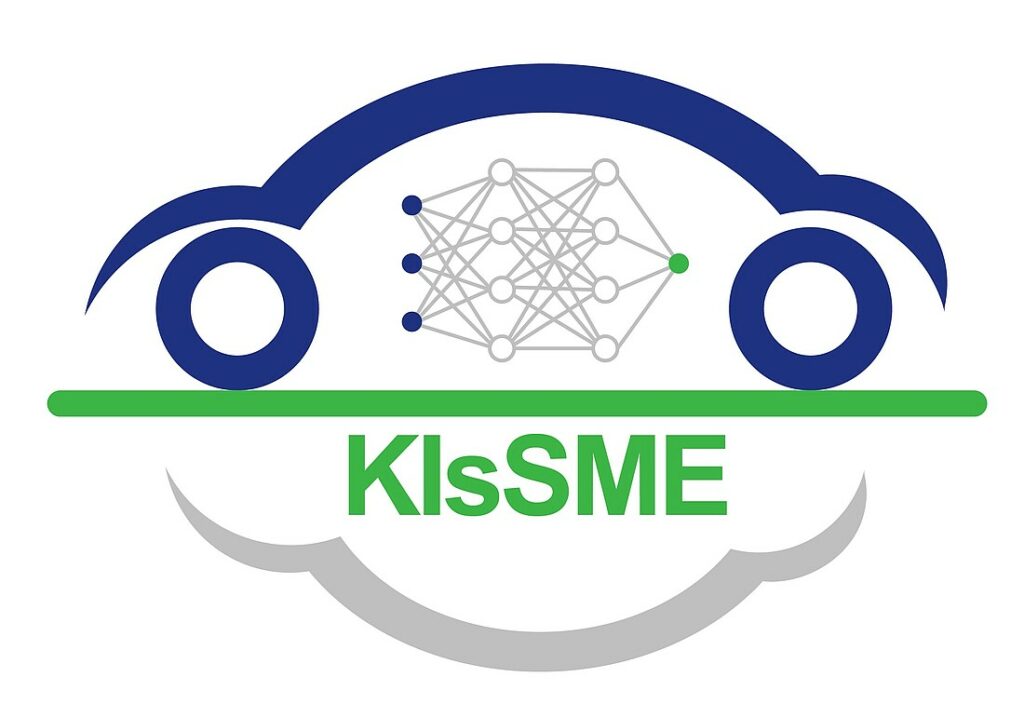SDI4ECom
Secure and self-determined digital identities in e-commerce
Start: 01/2021
End: 12/2023
To prove the safe function of highly automated vehicles, firmly defined scenario catalogs are used for maneuver-related evidence according to the current state of the art, as well as real-time data comprising several million driving kilometers for statistical verification.
To develop new vehicles with a 4/5 automation level, achieving a selective acquisition of relevant and critical driving situations, significant environmental data as well as raw data of the vehicle sensor system while driving are indispensable. This data is needed to validate, improve and reproduce the decisions made by artificial intelligence (AI), with the aim of thus achieving the necessary test coverage for future functionalities.
Within the KIsSME project, AI-based algorithms will be applied to enable on-board systems to recognize relevant and critical scenarios in real time and to selectively acquire raw data and scenario descriptions for this purpose. The AI-based algorithms will enable an inherent learning capability that continuously improves the recognition of critical situations and the associated relevant data to increase the information density of the data used for testing when developing level 4/5 automated systems, while simultaneously significantly reducing the associated data volume required as well as the effort needed to ensure data protection.
In this research focus, the FZI concentrates on practical research into the key technology of Artificial Intelligence (AI). Innovative AI solutions are developed and transferred to application areas such as mobility, robotics, healthcare technology, logistics, production, and supply and disposal on behalf of our partners and customers.
Smart solutions for the transportation of people and goods are a focus of FZI research to shape mobility in the future. To this end, the FZI develops integrated mobility systems – from vehicle automation and the application of AI in traffic systems to urban mobility and logistics.

Funding notice:
The KisSME project is funded by the Federal Ministry for Economic Affairs and Climate Action (BMWK).
Project partners:
Secure and self-determined digital identities in e-commerce
Jointly moving people and goods
Stopping pathogen transmission in hospitals quickly, reliably, and comprehensively using AI.
Generating resilient system-on-a-chip architectures for RISC-V
Body-worn sensors and wearables for recording vital data and identifying health-related issues in mental and psychosomatic disorders
Efficient and highly accurate data generation for AI applications in autonomous driving
Generative AI in Software Development with a focus on smart home applications.
Standardized interfaces for greater speed, safety, and sovereignty in vehicle development
New approaches for interconnected hospital logistics
The modular toolbox for flexible robotics, tailored to the needs of small and medium-sized automotive suppliers